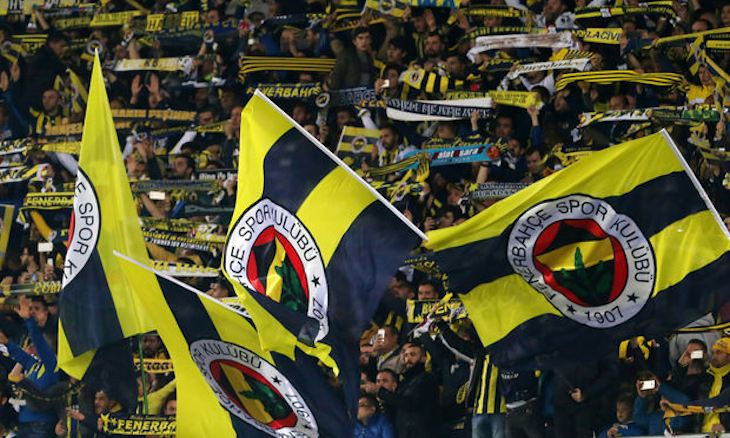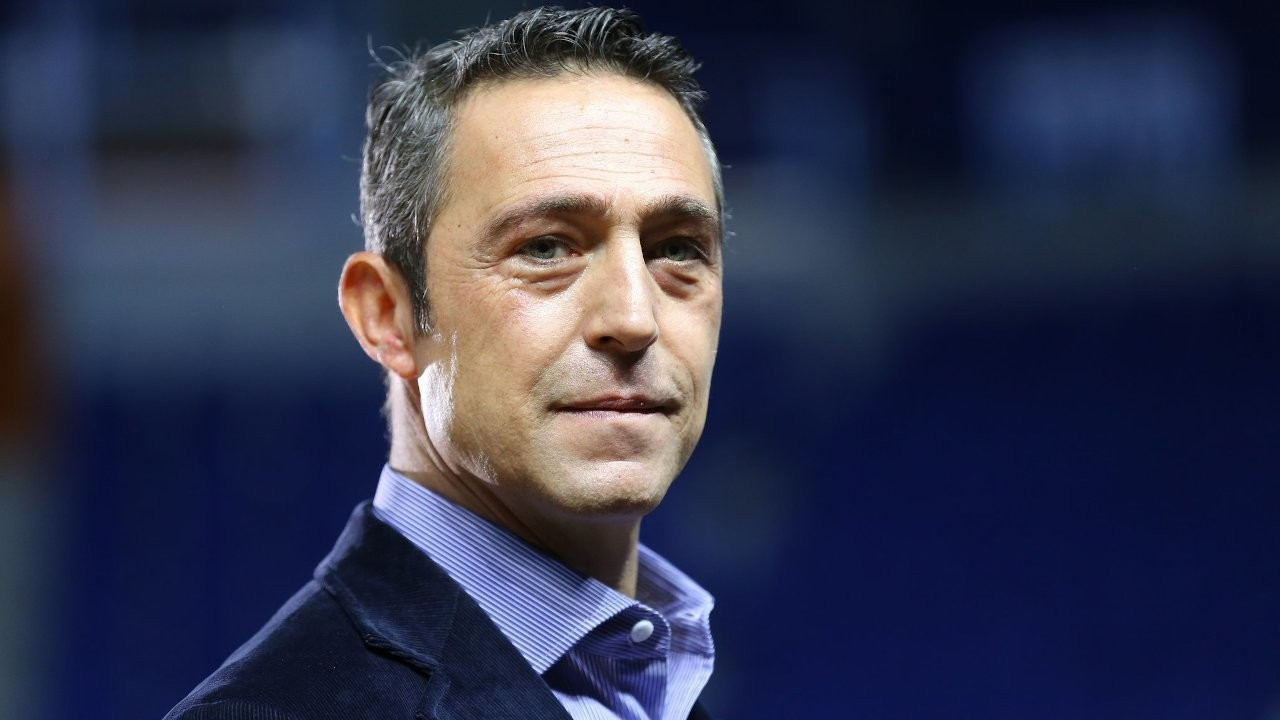Financial disarray compounds COVID-19 disaster for Turkish football
"The big three" of Turkish football reported a total loss of nearly 230 million Turkish liras (31 million dollars) according to an audit of their last 6 months of finances from the Turkish Public Disclosure Platform (KAP).
K. Murat Yıldız / Duvar English
Turkish football giants Fenerbahçe, Beşiktaş and Galatasaray, which have been suffering from financial problems and struggling to meet the Union of European Football Associations’ (UEFA) Financial Play Fair criteria, have been hit heavily by the decline in match revenue and the overall negative economic impact of the COVID-19 pandemic.
Beşiktaş topped the list with a recorded loss of some 180 million Turkish liras (24.5 million dollars), as Galatasaray had nearly 170 million liras (23 million dollars) and Fenerbahçe had 19.4 million liras (2.6 million dollars) in losses.
'It's like Monopoly money to them'
“Turkish clubs are run by individuals who spend other people's money, not their own. Some spend state money via sponsorships originating from not so ethical methods, while others spend the money of municipalities in a similar way. It is not their money. So, they don’t care. It's like Monopoly money to them,” a European football insider and an expert from Germany told Duvar English on the condition of anonymity.
“When they create debts on behalf of the club and have no legal responsibility for the future, their successors have to take care of the mess.”
Stealing money from the clubs
Regarding this nefarious behavior, he added that “many of the board members and others responsible for club management are stealing money from Turkish clubs.”
In addition to this corruption, he stated that incompetence has become a major problem among Turkish clubs, as the directors often have no experience with sports management. "They might be successful in other areas of business and life, but football is a multibillion industry which has its own dynamics.”
“A rich business owner in Anatolia can decide he wants to become his hometown's club president and that’s it. He has no legal or financial responsibility. He can leave whenever he wants.”
Giving an example of how this problem plays out he said, “There is a foreign player currently on an Anatolian team in the Turkish Super league who earns 5 times more on paper than what he was earning the season before in another European country. A large chunk of that money doesn’t even go to the player.”
Turkish football is manipulated by politics
Despite all this, there are rules meant to regulate such issues: The Financial Fair Play rules. However, although these rules are strict in Europe, the Turkish Football Federation (TFF) has its own FFP rules. Unfortunately, because the Turkish rules are manipulated by politics, he stated, "the Turkish one is a joke. Teams that don’t participate in European competitions don’t care about the UEFA’s FFP. Teams like Fenerbahçe and Kasımpaşa rightfully complained about this, but it fell on deaf ears.”
He concluded by saying that teams would be much better off if this were not the case, giving the example of Galatasaray’s coach Fatih Terim, who has said that "his board is not buying the players he wants. Believe me all those footballers would have already signed contracts with his team if it was not for the UEFA’s FFP.”
Only four clubs can pay on time
This analysis of the shortcomings of Turkish clubs is widespread. “At the moment there are only four clubs out of 21 in the top division that can make their payments, including player and staff salaries, on time: Başakşehir, Fenerbahçe, Erzurumspor and Göztepe,” Fenerbahçe fan and sports journalist Ahmet Ercanlar told Duvar English.
“Fenerbahçe lost around 10 million dollars in match revenue while Galatasaray lost some of its vital Champions League income due to the pandemic,” he added.
Government aims to control clubs
Ercanlar believes that the government is using state bank loans and debts to try and control clubs, saying, "they can even appoint trustees to clubs like they do in opposition municipalities.”
Unlike Fenerbahçe, which has resisted such government control and been in a better position, “many historic clubs like Kocaelispor, Eskişehirspor, Şanlırfaspor, Sakaryaspor, and Ankaragücü have suffered from bad management and been relegated to lower divisions."
Because elected officials of the clubs have no legal responsibility for the debts and damage they cause "they spend like there is no tomorrow and then they leave," Ercanlar stated, adding that laws and regulations should be implemented immediately to prevent this from happening.
The pandemic is no excuse
Although these problems have been exacerbated by the pandemic, the health crisis itself has not been the sole cause.
“Present club managements inherited a lot of debt from the past. For example, Fenerbahçe’s debts peaked when they transferred Van Persie. Galatasaray brought in Drogba and Sneijder and the same thing happened. The transfer expenditure of clubs is much higher than their transfer income. Which of course is unsustainable,” journalist and sports economics expert Okan Can told Duvar English.
Although the current income of Turkish football clubs is low, Can says that the pandemic is no excuse, saying, "If the pandemic hadn't happened we would still be talking about the same thing now.”
“The clubs are trying to survive by borrowing money with high-interest rates from banks. Especially Galatasaray and Beşiktaş as they have a large chunk of debt in foreign currencies and have been hit hard by the recent foreign currency shocks,” he pointed out.
Anatolian clubs’ spending is not being checked
Although awareness of this problem is widespread, “There is no authority that really checks Anatolian clubs spending," Can added. "They get a new president and he brings in 17 new players. 17 new players mean 17 new player agents. If they each earn 100,000 euros that is 1.7 million Euros.”
This cyclical problem is exacerbated by the constant hiring and firing of players and coaches. As a result, "international football organizations have a large number of open legal cases against our clubs, mostly by foreign players and coaches,” Can pointed out, an issue that also harms the reputation of Turkish sports and clubs in general.
11 new players in one day
An example of this is Ankaragücü, a team that has been struggling financially for years, which brought on 11 new players on the same day that the transfer window closed. "That is illogical,” Can said.
“We can’t prove it on paper, but we know that some club directors are stealing money from clubs in terms of transfers and wages. You are a player in Germany and you make 300,000 euros a year. I give you a contract for 500,000 euros for 4 years. We all know where the difference is going. It is an established system, which everyone knows about, but no one is talking about,” he added.
An unethical cycle
In addition to the fact that some player managers, directors, and club chairmen are part of the ruling party and even relatives of President Erdoğan, Can noted that “some sports journalists are also player agents and manipulate transfers, which further deteriorates the finances of the clubs in their columns and TV programs.”
“It is an unethical cycle,” Can concluded.

 Politics in stadiums: Fenerbahçe fans urge minister Albayrak to keep hands off footballSport
Politics in stadiums: Fenerbahçe fans urge minister Albayrak to keep hands off footballSport Mesut Özil arrives in Istanbul to join FenerbahçeSport
Mesut Özil arrives in Istanbul to join FenerbahçeSport Turkish billionaire and Fenerbahçe chair Ali Koç buys $14.5 million mansion in Los Angeles Bird StreetsEconomy
Turkish billionaire and Fenerbahçe chair Ali Koç buys $14.5 million mansion in Los Angeles Bird StreetsEconomy Turkish Football Federation insists on resuming leagues despite new coronavirus cases in clubsSport
Turkish Football Federation insists on resuming leagues despite new coronavirus cases in clubsSport